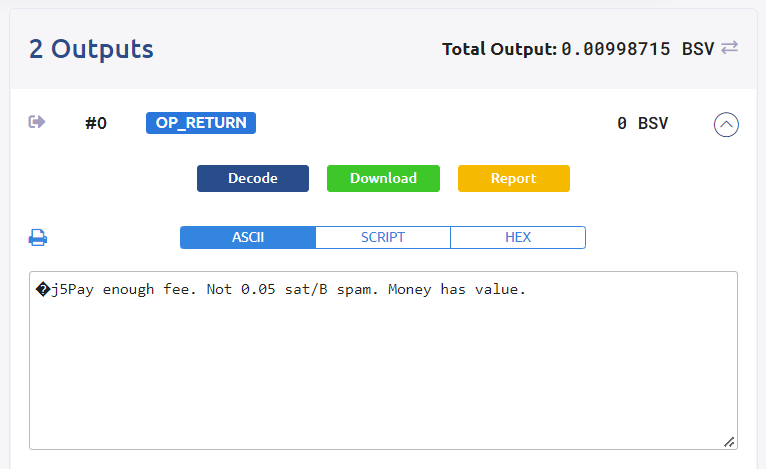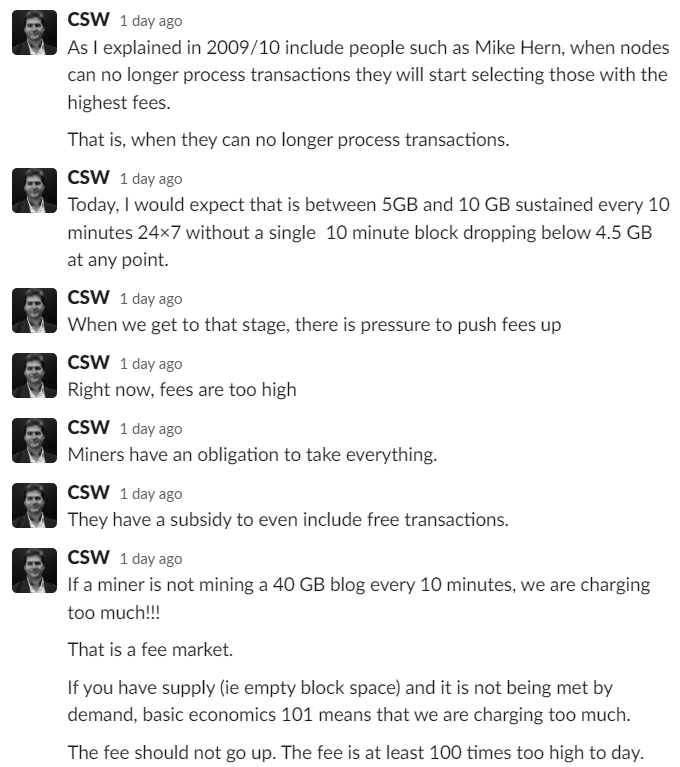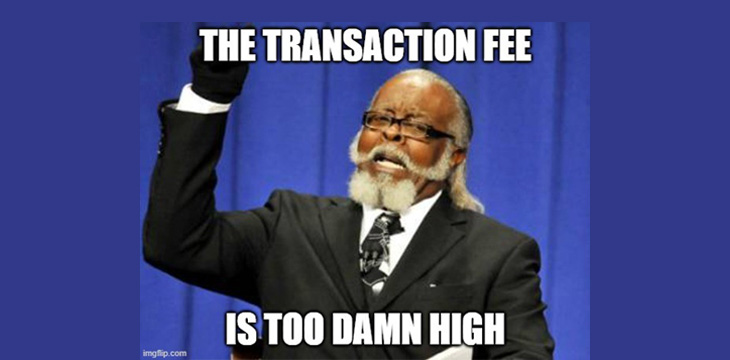|
Getting your Trinity Audio player ready...
|
In October of 2022, I wrote an article questioning if nodes on the BSV blockchain should raise fees in efforts to combat the empty block miner. I wrote that article without considering that the miners earn a subsidy, not a reward for mining blocks.

Section 5, step 2 of the white paper states, “Each node collects new transactions into a block.” If we consider that a node is subsidized to perform this task and accepts the subsidy but does not perform the task, they are not following the guidance set forth here.
This empty miner allegedly did express what fee rate they would accept transactions at by mining their own high-fee transactions into a block:

The claim is that 0.05 satoshis per byte are “too low.” And taking a free market approach to this issue, the natural questions become 1) what is too low? and 2) who gets to decide?
Satoshi Nakamoto stated in 2010 that “we should always allow at least some free transactions” in response to another user theorizing that they “expect it will be a long time before a high % of nodes require a fee for normal transactions.” Given that no free transactions are currently mined on BSV, Satoshi would believe 0.05 is “charging too much.”
I stated this in 2008 and have pushed it hard enough since. If we are not reaching market clearing rate, which means 4GB every 10 minutes then we are charging too much.https://t.co/ufv27aH1eB
— Dr Craig S Wright (@Dr_CSWright) October 19, 2022
Why should miners accept some free transactions? Because they are subsidized to do so. This empty block miner is taking payment for work that is not being completed. Furthermore, just because a miner attempts to fix the price of a service does not mean that users must accept it. Conversely, users cannot tell the miner what fee he must accept.
The converse is being misconstrued in a debate on social media where Craig Wright’s statements that miners are charging too much are being interpreted as him attempting to force miners to lower their rates. His response is that if the miners feel this way, their choice can be to not mine and take the subsidy, that the subsidy is only valid if they perform the work.
The argument that prices should fluctuate freely up or down is correct if there is no subsidy. Attempting to jack up the price of transactions arbitrarily when regularly there exist enough transactions that do pay a fee is acting dishonestly, especially when they are already paid to do so! Wright argues that once a block is “full” (in this case, 4GB is the market-decided maximum block size), then miners can compete on fees.
Wright on October 19, 2022:

Wright on November 23, 2018:

This empty block miner was simply taking the subsidy without doing the associated work, which is being labeled as gaming the system or, depending on you who ask, breaking the law. In any case, I now echo Daniel Krawisz’s sentiments
Whether you agree that there is a legal case against the empty blocks miner I think it's crazy that we can't all agree that he's a malicious parasite.
— Daniel Krawisz – end mass scams with proof-of-work (@DanielKrawisz) October 19, 2022
A more nuanced debate is being had over whether it is the job of “honest” miners to punish this behavior and orphan the empty block miner. Such action would have immediately resolved the network disruptions reported during this time and disincentivized the behavior, as the other miner would have found himself mining empty blocks on a worthless chain.
The entire purpose of generating a block hash is to decide which new transactions are factual
An empty block means that miner is saying all new transactions are invalid
Consensus rule:
Orphan block with empty transactions if there are over x number of known transactions pending pic.twitter.com/iISeiiYp2p— Phil Wilson (@_Phil_Wilson_) November 21, 2020
Jimmy Nguyen has always said, “It’s time for Bitcoin to grow up,” which rings true more than ever.
Watch: CoinGeek Conference in New York, Dr. Craig Wright’s keynote speech “Set in Stone: What is a Commodity?”

 03-01-2026
03-01-2026 




